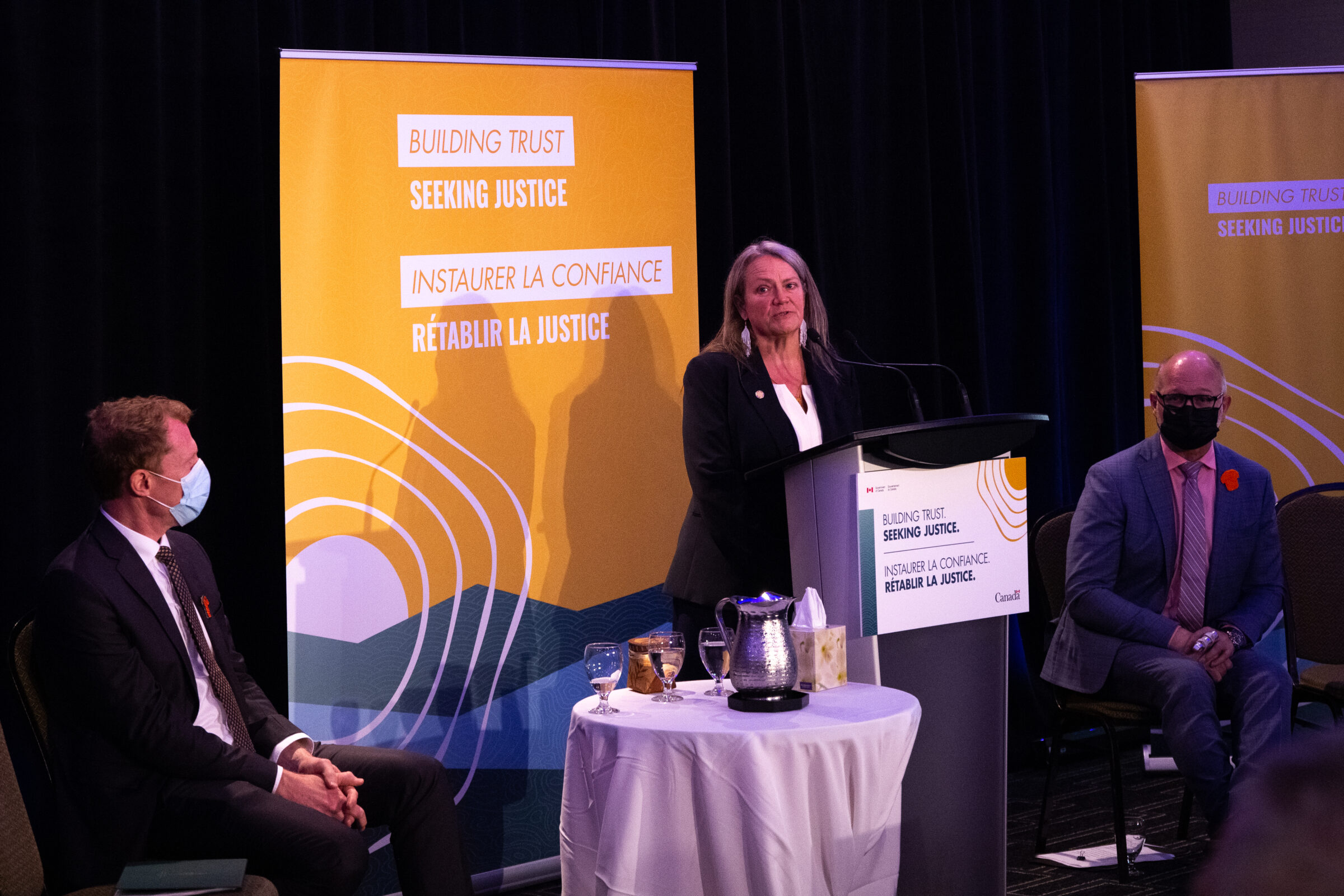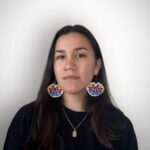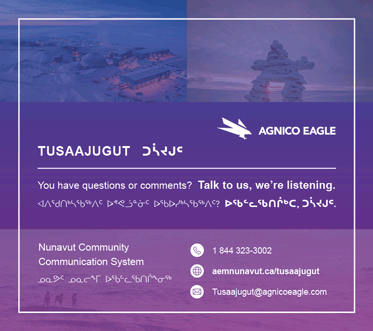Iqaluit to host national gathering on unmarked graves at residential schools
Three-day conference this week will focus on experiences of Inuit and northern communities
Special interlocutor Kimberly Murray will speak this week when Iqaluit hosts the sixth National Gathering on Unmarked Burials from Jan. 30 to Feb. 1. (File photo by Jeff Pelletier)
Unmarked burials and the experiences of Inuit and northern communities will be the focus of a conference opening in Iqaluit later this week.
Participants from across the country will attend the sixth National Gathering on Unmarked Burials, running Jan. 30 to Feb. 1 at the Aqsarniit hotel.
“I think it’s very important for the survivors and the teams to come together to share with one another,” said Kimberly Murray, the independent special interlocutor for missing children and unmarked Graves and burial Sites associated with Indian residential schools.
“It’s also very healing, and an opportunity for communities to heal together and for me to learn as well.”
Murray, a Mohawk lawyer from Kahnesatake Mohawk Nation in Quebec, was appointed by the federal government in 2022.
Her two-year mandate is to provide recommendations for a federal legal framework for the treatment of unmarked graves and burial sites of children associated with former residential schools.
As special interlocutor, Murray has been meeting Indigenous community members to discuss investigations into unmarked graves as well as protection and preservation of burial sites.
“Although my mandate was Indian residential schools, I don’t think it should matter where the person died,” Murray said in an interview.
“It was all the government of Canada who sent the children and young people to these institutions, and when they died, didn’t return them home.”
From the 1870s until the mid-1990s, 139 residential schools operated across Canada, including 13 schools that operated at various times in Nunavut and four in Nunavik.
Dozens of searches for unmarked graves have begun across Canada since 2021 when the Tk’emlúps te Secwépemc Nation revealed ground-penetrating radar had found what are believed to be the unmarked graves of more than 200 children in Kamloops, B.C., at the site of a former residential school, The Canadian Press has reported.
In addition to hearing about the experiences of people at residential schools, Murray anticipates the three-day Iqaluit conference will also hear from survivors in the North about the sanatoriums, hospitals, mission schools, day schools, and federal hostels where children were taken.
“I think it’s really important that people from other regions hear about the work that northerners are doing,” Murray said of the gathering’s focus on Inuit and northern experiences.
Participants will hear from survivors’ sharing circles and panels focused on strategies to support the search and recovery of missing children, and learn how to search for records.
They will have access to trauma-informed and culturally appropriate supports. Residential school survivors, elders, knowledge holders, Indigenous leaders and technicians leading search and recovery efforts will also speak.
Murray said that when she was appointed as interlocutor, “there were about 80 communities that were receiving funding from Canada, now it’s up to around 130.
“We see communities all over the country receiving funding but they are all at different stages.”
After the gathering, Murray will prepare a final summary report with recommendations to be presented at the national closing gathering in Ottawa in June.
In February, the Protecting our Ancestors Conference in Winnipeg will address the need for federal legislation to ensure protection, control, disposition and repatriation of ancestral remains and belongings.
Murray recommended Inuit survivors who are able should try to attend to share their thoughts on the legislation.







Cheaper to ”ZOOM” , no?
Have they confirmed that any of these sites contain bodies yet?
It is shameful that there has been no discourse about this. Apparently if you ask this question you are deemed to be a racist school denier. I am so troubled by the approach, I mean the TRC starts with truth and the truth is something else altogether than what is being mouthpieced
There is a.proposal to make it illegal to question ‘denialism’ which includes asking questions like these. Enjoy it while you can. I remember a time not so long ago when even Nunatsiaq would not allow comments like these.
Where are all the inuit marked graves? Inuit themselves don’t have a history of permanently marking graves. Marked graves are a post-missionary thing. If someone died at residential school, the grave probably did start out with a marker, just like graves did in all the other small old cemeteries in Canada, where the markers have deteriorated, or fallen and become covered up by soil and grass, over the years.
There are many “unmarked graves”—in recognized cemeteries. That’s because it’s customary to mark a grave with a wooden cross, which disintegrates over time.
There are no graves, marked or unmarked, in the Kamloops orchard. Why would there be when there’s a nearby cemetery? Yes, ground penetrating radar picked up ground disturbances. That’s because there had been prior industrial use of the land and drainage tiles were laid in 1924. At the 6 sites where there’s been excavation, they’ve not found a single burial. Only rocks.
Ask grandstander Murray for the NAME of even a single “missing” IRS attendee.
This entire “unmarked graves” narrative is a multi-million-dollar make-work project and scam for pretentious snouts in the trough. You could build a lot of houses even at Nunavut prices for the taxpayers’ money the grandstander Murray is, shall we just say, sending down the drain.
K. Murray is a special interest interlocutor.
so tax payers money is the most important thing you took out of this article?
There has been, you just not paying attention, all you care about how this hurts settlers feelings and deniers like you .
Say again?